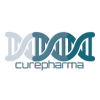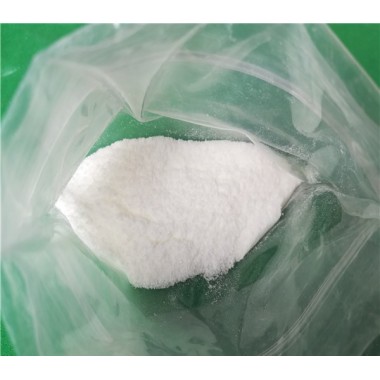Benzocaine Local Anesthetic Drugs Pain killer Benzocaine for relieve pain CAS 94-09-7
jamesliu@ycphar.com
skype: cotanjames
whatsapp: +86-13802264524
Product name: Benzocaine;Anesthesin;Parathesin;Auralgan Otic;Ethyl aminobenzoate;Ethyl 4-aminobenzoate
CAS NO:94-09-7
Assay:99.5%
EINECS:202-303-5
Molecular formula:C9H11NO2
Molecular weight:165.19
Appearance: White crystalline powder
Grade : Pharmaceutical Grade
Storage: Shading, confined preservation
Application:It is a topical anesthetic that helps to numb the pain and itching for wounds, pain, ulcer and hemorrhoids, as well as intermediates of cough suppressants.
Usage: Benzocaine is a local anesthetic commonly used as a topical pain reliever or in cough drops. It is the active ingredient in many over-the-counter anesthetic ointments such as products for oral ulcers. It is also combined with antipyrine to form A/B otic drops to relieve ear pain and remove earwax.
Description:
1. Benzocaine is a local anesthetic, non water soluble, external use for spreading agent, for pain, trauma ulcer after operation pain, analgesic, antipruritic effect. Benzocaine topical anesthetic products for skin and mucous membrane, the role is characterized by rapid onset, of about 30 seconds can produce analgesic effect, and no permeability of mucous membrane, low toxicity, does not affect the cardiovascular system and the nervous system, but also used for protection of agent shade.
2. Benzocaine is approved by the U. S. Food and Drug Administration (FDA) and is safe and effective when used according to label directions. Some oral discomfort treatments can be used to temporarily relieve pain due to toothaches; However, these medicines are not intended for long-term treatment. If your toothache pain is severe or lasts for more than seven days, you should talk to your dentist.
Benzocaine may not be contained in all products sold under these brands. Please read the OTC Drug Facts label carefully for active ingredient information for specific products.
Application:
1. Benzocaine is a topical analgesic (meaning it is to be used on the body surface or in the mouth but should not be swallowed) that has a number of different uses in over-the-counter (OTC) medicines. Depending on the dose and form, the active ingredient benzocaine can be used to relieve throat and mouth pain; To alleviate external vaginal itching and burning; To stop pain and itching due to hemorrhoids; Or to relieve minor skin irritations, pain, and itching. Because benzocaine is available in different doses and forms, it is very important to read the Drug Facts label carefully to determine whether the medicine is intended to be used for the symptoms you are experiencing.
2. Benzocaine can be the only active ingredient in oral treatments that relieve sore throat or address mouth pain caused by cold sores, canker sores, teething, and other issues. It also can be combined with other active ingredients in oral treatments that not only relieve mouth and throat pain, but also protect irritated areas, provide a soothing coating, or relieve dryness.
3. While oral discomfort treatments containing benzocaine are intended to be used in and around the mouth, there are other topical benzocaine medicines that should only be used externally, or on the outer surface of the body (not near or in the mouth). For example, benzocaine can be found in vaginal medicines that contain more than one external analgesic ingredient or in single active ingredient hemorrhoid treatments. Benzocaine also is available in topical pain relievers that not only relieve skin irritations, pain, and itching, but also contain other active ingredients that kill germs and help prevent infection.
Use:
Benzocaine is indicated to treat a variety of pain-related conditions.
Benzocaine may be used for:
Local anesthesia of oral and pharyngeal mucous membranes (sore throat, cold sores, canker sores, toothache, sore gums, denture irritation)
Otic Pain (earache)
Surgical or procedural local anesthesia
Benzocaine is used as a key ingredient in numerous pharmaceuticals, Benzocaine largely inhibits sensitivity on the penis, and can allow for an erection to be maintained longer (in a continuous act) by delaying ejaculation. Conversely, an erection will also fade faster if stimulus is interrupted.
Benzocaine mucoadhesive patches have been used in reducing orthodontic pain.
In Poland it is included, together with menthol and zinc oxide, in the liquid powder (not to be confused with the liquid face powder) used mainly after mosquito stings.
Benzocaine is commonly found, particularly in Britain, as an impurity in street . Whilst giving a numbing effect similar to on users' gums it does not actually produce the effects . But in terms of an orally based saliva drug test benzocaine can and has been mistaken for a false positive.
| Local Anaesthesia |
| Dimethocaine Hydrochloride |
| Dimethocaine |
| Tetracaine hydrochloride |
| Tetracaine |
| Ropivacaine Hydrochloride |
| Proparacaine Hydrochloride |
| Procaine Hydrochloride |
| Procaine |
| Propitocaine Hydrochloride |
| Prilocaine |
| Pramoxine Hydrochloride |
| Lidocaine |
| Levobupivacaine Hydrochloride |
| Dibucaine hydrochloride |
| Bupivacaine Hydrochloride |
| Bupivacaine |
| Benzocaine |
| Articaine hydrochloride |
| Benzocaine hydrochloride |
| Linocaine Hydrochloride |
| Prilocaine Hydrochloride |





